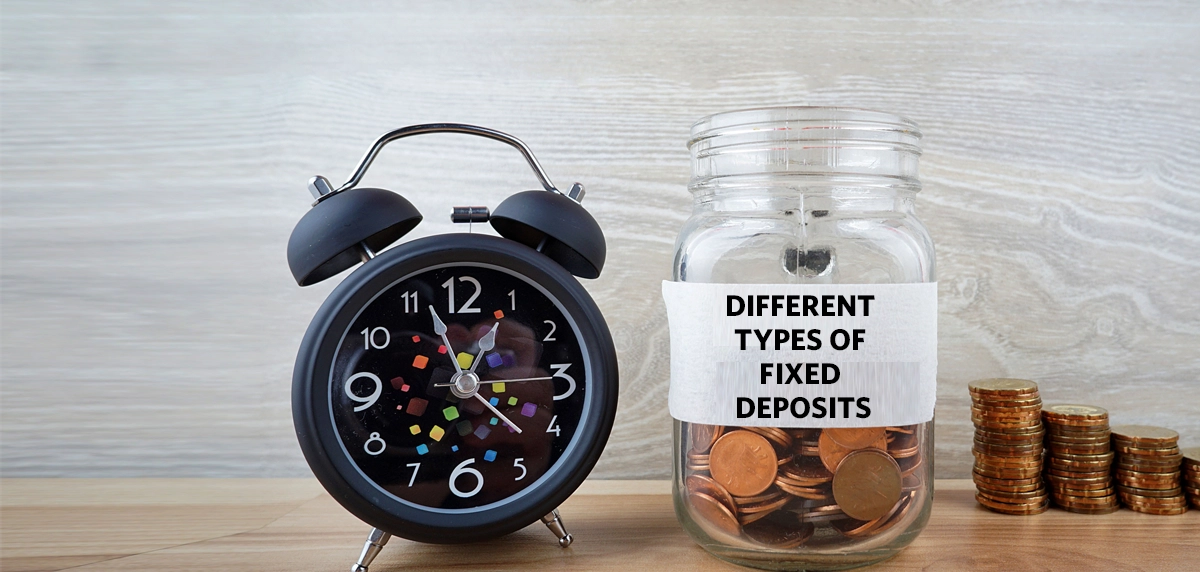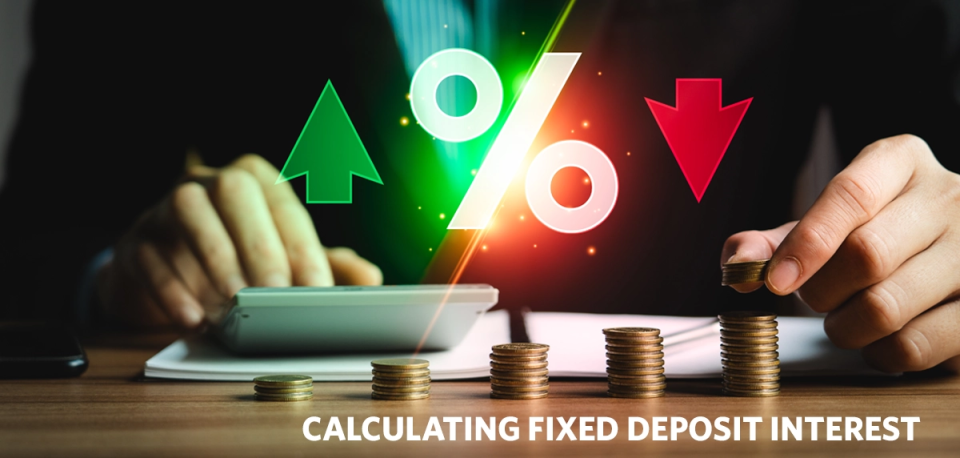When it comes to safe and trusted investment options in India, Fixed Deposits or FDs tend to top the list. Primarily offered by banks, FDs are a low-risk investment avenue that comes with the assurance of predictable returns. They offer investors a simple way to grow their savings at a steady pace without taking high risks. However, not all FDs are the same. There are different types of fixed deposits to help suit different financial needs.
Overview of Fixed Deposits
An FD is a financial instrument offered by banks and non-banking financial companies (NBFCs) where you invest a lump sum amount for a fixed tenure at a predetermined interest rate. You earn interest on the deposited amount. When the tenure ends, you receive the principal amount you had invested plus the interest it has accumulated.
While this basic feature remains the same, the different types of FDs have distinct features that can appeal to wider audiences.
Types of Fixed Deposits
Below are the main types of FD options available in India:
Standard Fixed Deposits
These are the most common types of fixed deposits. You deposit a lump sum for a fixed period that can range from 7 days to 10 years. Interest is offered at a fixed rate. You can choose to receive the interest at maturity or at regular intervals. Individuals looking for a low-risk, predictable return can opt for standard FDs. They are ideal for building a financial cushion.
Senior Citizen Fixed Deposits
These types of FDs are designed for individuals above 60 years of age. They offer higher interest rates compared to standard FDs. It is a secure and attractive choice for retirees to earn a stable income with minimal risk.
Cumulative Fixed Deposits
In cumulative FDs, the interest is not paid at regular intervals. Instead, it is compounded quarterly or annually. Then, the accumulated interest is paid along with the principal at the end of the tenure. This type of fixed deposit is ideal for long-term investors looking to accumulate wealth through the power of compounding.
For example, if you are looking to save for a down payment on a home in 5 years, you may find cumulative FDs an ideal choice.
Non-cumulative Fixed Deposits
These FDs pay interest periodically, i.e., monthly, quarterly, half-yearly, or yearly. They are suitable for people who want a regular income, such as retirees or individuals with recurring expenses like EMI payments. It can be a practical choice for those looking to add an additional source of income without dipping into their savings.
Tax-Saver Fixed Deposits**
As its name suggests, a tax-saving fixed deposit can provide tax relief to the individual. It offers tax deductions up to ₹1.5 lakh under Section 80C of the Income Tax Act. However, note that this type of fixed deposit comes with a lock-in period of 5 years. You cannot withdraw this amount before this lock-in period ends.
It can be an ideal option for salaried individuals who want to reduce their taxable income while earning interest. However, the interest earned is taxable, if above the specified limit.
Company FDs
These are fixed deposits issued by companies or NBFCs. They tend to offer higher interest rates than bank FDs. However, they carry a slightly higher risk. In such a situation, checking the company’s credit rating is important before investing. If you are comfortable with moderate risk and are looking for better returns, you may want to consider these types of FDs.
Post Office Fixed Deposits
Offered by India Post, these FDs have tenures of 1, 2, 3, or 5 years. The post office fixed deposit interest rates are set by the government. These are ideal for conservative investors as the schemes are backed by the government. In addition, individuals from all across the country can access them and avail of their benefits.
For ease of understanding, here’s an overview of the different types of fixed deposits:
Type of FD
| When is the Interest Paid?
| Tenure
| Risk
| Who Offers this Type of FD?
|
Standard FD
| At maturity or regular intervals, as per the investor’s choice.
| 7 days to 10 years.
| Low.
| Banks and NBFCs.
|
Senior Citizen FD
| At maturity or regular intervals.
| Varies.
| Low.
| Banks.
|
Cumulative FD
| Interest paid at maturity.
| Varies.
| Low.
| Banks and NBFCs.
|
Non-cumulative FD
| Monthly/Quarterly/Half-yearly/Yearly
| Varies
| Low.
| Banks and NBFCs.
|
Tax-Saver FD
| At maturity.
| 5 years.
| Low.
| Banks.
|
Company FD
| Flexible
| Varies.
| Medium.
| Corporate companies.
|
Post Office FD
| At maturity or regular intervals.
| 1 to 5 years.
| Low.
| India Post.
|
Benefits of Investing in Fixed Deposits
With so many different types of fixed deposits available in the market, there are many benefits to choosing the right one.
Principal Remains Unaffected
FDs are not impacted by market fluctuations, which means your principal is safe.
Guaranteed Returns
FD interest rates are fixed, so you know exactly how much you will earn at maturity. You can use an FD calculator for accurate estimates.
Flexible Tenure
Depending on your goals and needs, you can choose a tenure ranging from 7 days to 10 years.
Tax Benefits**
By opting for a tax-saving fixed deposit, you can claim deductions under Section 80C and reduce your tax outgo.
Customisable Payouts
You can select between cumulative and non-cumulative options based on your income needs.
Easy to Open and Manage
You can open any of the different types of FDs online or at a bank branch with just a few steps. Once opened, you do not have to put in any effort to manage it
Loan Against the FD
Many banks allow you to use the FD as a collateral for a loan. You can avail of a loan of up to a certain value of your FD amount and get financial support during emergencies without breaking your deposit.
No Deduction of TDS (in some cases)**
You can submit Form 15G or 15H to your bank and avoid TDS on your fixed deposits if your total income is below the taxable limit.
In addition to the different types of FDs for regular citizens, banks offer special fixed deposit options for Non-Resident Indians (NRIs) as well.
Types of Fixed Deposits for NRIs
Indian citizens residing abroad can enjoy the benefits of FDs via the following options:
NRE (Non-Resident External) Fixed Deposit**
This type of FD is ideal for NRIs who want to convert foreign income into Indian rupees. Interest earned is tax-free in India, and both principal and interest are repatriable.
NRO (Non-Resident Ordinary) Fixed Deposit**
This FD can be used to deposit money in foreign or Indian currency. Interest is taxable and subject to TDS on fixed deposits.
There are many different types of fixed deposit options in India, each offering something unique to suit different financial needs. Whether you are looking for regular income, want to accumulate wealth, or enjoy tax benefits, there is an FD type for you. Make sure to choose the right FD that suits your goals to secure your future the right way.
**Tax exemptions are as per applicable tax laws from time to time.
























